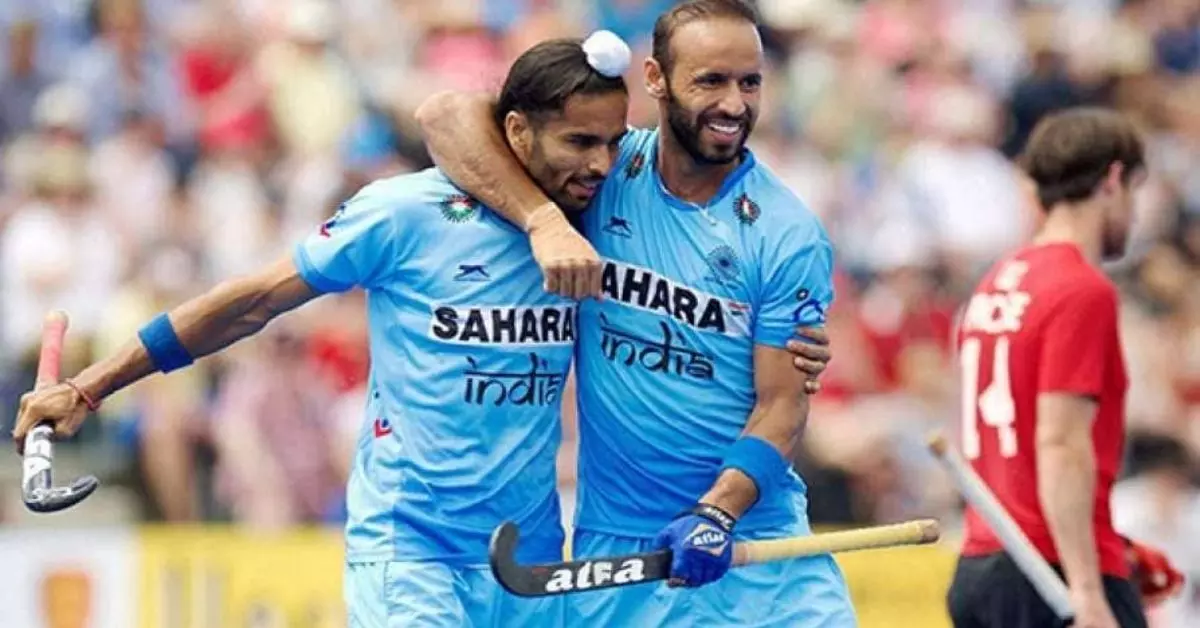Hockey
Lack of experienced forwards could hurt the Indian hockey team at Tokyo Olympics
Coach Graham Reid's decision to leaving experienced players surprised many people in the Indian hockey community as it weakens the forward line.

Forwards Akashdeep Singh and Ramandeep Singh (Source: Hockey India)
After plenty of speculations, a 16-member Indian men's hockey team has been announced for the Tokyo Olympics. If one looks at it, the team holds a good mixture of youth and experienced players. However, what shocked many hockey fans was that coach Graham Reid and the selection committee decided to leave out the experienced trio of Akashdeep Singh, SV Sunil, and Ramandeep Singh for the biggest showdown of hockey.
The decision to leaving experienced players surprised many people in the Indian hockey community as it weakens the forward line.
India's record in the last two Olympics hasn't been something to remember, and the team has struggled in front of the goal. While the Indian team scored ten goals in six games in the Rio Olympics, the team could only manage eight goals in six games at London Games.
There is no doubt that young players selected in the place of experienced players have an elevated level of motivation and willingness to prove themselves, but the Olympics is not a tournament to experiment. The amount of pressure on the players is enormous, and it could end up overwhelming the young players on the biggest stage of all.
In a tournament like Olympics, experience counts a lot. The players left out by Indian team management have proved themselves many times on the field. Akashdeep Singh, SV Sunil, and Ramandeep Singh have earned more than 400 joint caps among themselves and are being replaced by players who have not even earned 100 caps.
Including these young players, the Indian team has surely sacrificed experience that could backfire when the tournament starts.
Going back again to the earlier two Olympics, the mediocre performance in 2012 was due to lack of strategy, but in 2016, the situation was similar as of today. In the 2016 Rio Olympics, the Indian team went with just four forwards and was forced to play Sardar Singh in the forward line to compensate for fewer inexperienced forward lines.
Having an inexperienced forward line will also put added pressure on the rest of the team when it comes to goal scoring. Now playing the role of senior players, apart from shouldering goal-scoring responsibility, they will also have to guide younger players on the field.
In the past few years, Mandeep had Akashdeep and SV Sunil to support him in the striking circle, while Ramandeep Singh very well supported Lalit in the playmaking role. The absence of senior stars would also add responsibility on the midfield led by Manpreet Singh.
Captain Manpreet Singh is also leading a midfield that is less experienced compared to earlier Olympics. Sumit, Nilakantha, Vivek, and Hardik are talented players for sure, but the Indian midfield relies a lot on Manpreet Singh to bail the team out in demanding situations.
The recent Pro League game against Argentina proves the above point. Trailing 2-1, and the team unable to break the deadlock, Manpreet picked the ball, beat five players, and earned a penalty corner that helped India to draw the game. Though it is business as usual for Manpreet in his extensive career for India, with an inexperienced forward line, the pressure on Manpreet will increase.
It is quite well known in sports circles and at every workspace that experience plays a significant role in every team's performance. And for an important tournament like the Olympics, teams need proven goal scorers and players who can keep their cool in a crunch situation and get the results.
Indian hockey fans have waited for over 40 years to win a medal in Olympics. With the current team selections, the wait might go on a bit longer.
This article was originally published on Givemehockey.com. The website aims to promote field hockey throughout the world through their in-depth analysis of the games and tournaments and opinions on events that affect our game.
